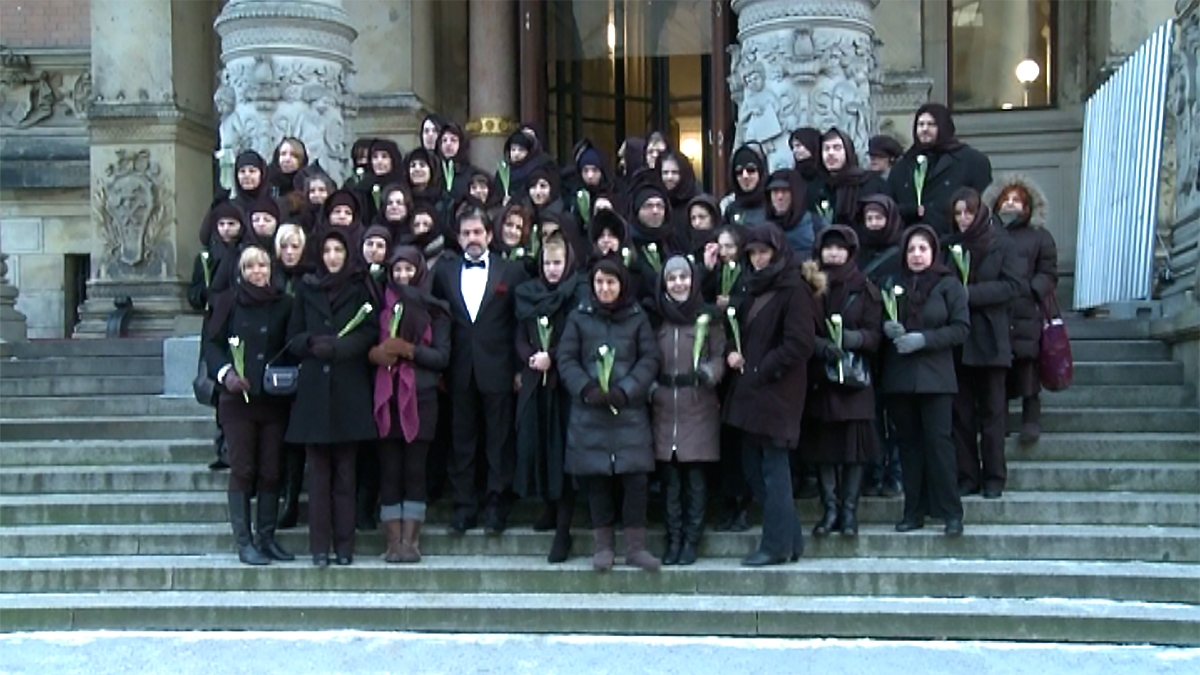
video still
72 "Virgins", 2009
A Critical and Ironic Performance in Public Space
Performance in the framework of the Taswir exhibition - Martin-Gropius-Bau
The performance titled 72 "Virgins" took place in Berlin in December 2009 as part of the Taswir exhibition at the Martin-Gropius-Bau. Created by artist Shahram Entekhabi, the performance offered a thought-provoking and ironic perspective on the concept of "72 virgins." The artist aimed to deconstruct the stereotype of "The Other," challenging prevailing notions of masculinity and shedding light on the instrumentalization of ideology, religion, and society for political purposes.
Resembling a Flashmob action, the performance commenced at The Berlin State Library, where Entekhabi and 72 individuals, symbolically represented as "virgins" dressed in black, gathered. Together, they embarked on a symbolic procession towards the Martin-Gropius-Bau.
Building upon Entekhabi's previous projects, 72 "Virgins" critically examines the portrayal of Muslims and marginalized communities. The performance confronts the clichés associated with Islam while simultaneously questioning the notions of roles, promises, and ideals perpetuated and distorted by political and religious discourse. Entekhabi's work intentionally challenges the authenticity and contested nature of certain practices within contemporary Islamic debates.
Moreover, the project employs a humorous lens to explore rites of passage, particularly the institution of marriage, which typically occurs during one's lifetime. However, the artist presents a satirical twist by highlighting that for martyrs, their marriage to 72 "Virgins" only takes place after death.
72 "Virgins" also offers a tongue-in-cheek reflection on the establishment of knowledge. It invites the Western male perspective, rooted in Judeo-Christian traditions, to consider the notion of attaining 72 virgins in paradise as a form of religious sacrifice and honor. By intertwining sexual desires, wish fulfillment, and rich sexual imagery from these traditions, Entekhabi prompts the audience to critically reflect on societal perceptions.
Please note that the artist's intention is to offer a critical and ironic perspective on the concept of "72 virgins," challenging prevailing stereotypes and cultural narratives.